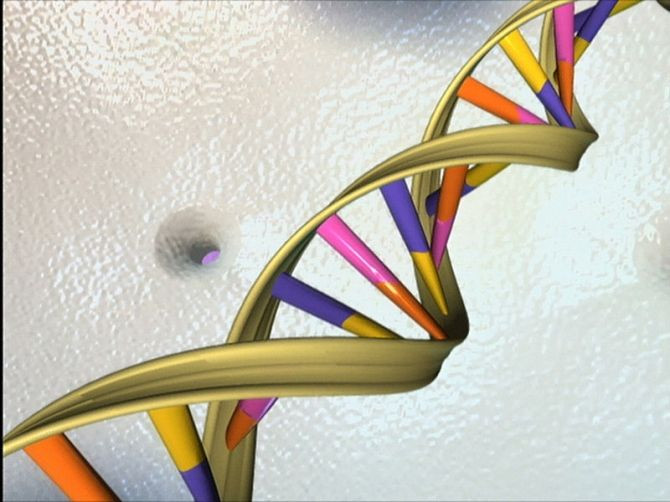Genetic Testing Company 23andMe Seeks FDA Approval for At-Home Kits

23andMe, a genetic testing company, is seeking FDA approval to sell its at-home genetic testing kits. If the move is successful, it could lead to increased trust from the scientific and medical professional community.
23andMe is one of many genetic testing companies that exist. None have FDA approval and, until recently, 23andMe said that their results were for consumers' information rather than diagnostic purposes. 23andMe is arguably the most high-profile of such services; its CEO and co-founder Anne Wojcicki is married to Google co-founder Sergey Brin, and its two co-founders made Time magazine's 2009 list of its 100 Most Influential People.
23andMe and its competitors proclaim to give consumers insight into their medical future from their genes, helping them to see whether they are likely to develop illnesses like breast cancer and Alzheimer's disease. Critics claim that genetic testing technology is still in its infancy, and the link between genetics and disease is still rather poorly understood. (Slate magazine recently ran a feature that claimed that James Watson, the controversial scientist who co-discovered DNA's double-helix structure, based on his genomes, should be blind, deaf, and have Cocayne Syndrome, wherein sufferers age at an accelerated rate, grow to a smaller stature, have small heads, and are photosensitive. By all accounts, Watson has exhibited none of those traits.)
Nevertheless, Wojcicki and the company are pushing forward with FDA approval. 23andMe now has kits that can test up to 115 different diseases. 23andMe said Monday that they sent the FDA seven tests, and hope to send an additional 100 more. Tests about ancestry and other nonmedical traits will not be sent to the FDA, as those do not fall under the FDA's jurisdiction.
While critics maintain that 23andMe's tests are pretty useless at the moment, they concede that the company is taking the correct step – even though an undercover government investigation on four genetic-testing companies revealed that they found contradictory results for one patient. And, as test makers analyze ever-larger swaths of the human genetic code, they are able to sight risks for treatable diseases, like prostate cancer and aneurysms.
Currently, the kits cost $299, and require a saliva sample. Within three weeks, and without the assistance of a physician, consumers are able to learn about their probability of developing hundreds of diseases. The company says that 150,000 people have taken their tests so far.



























